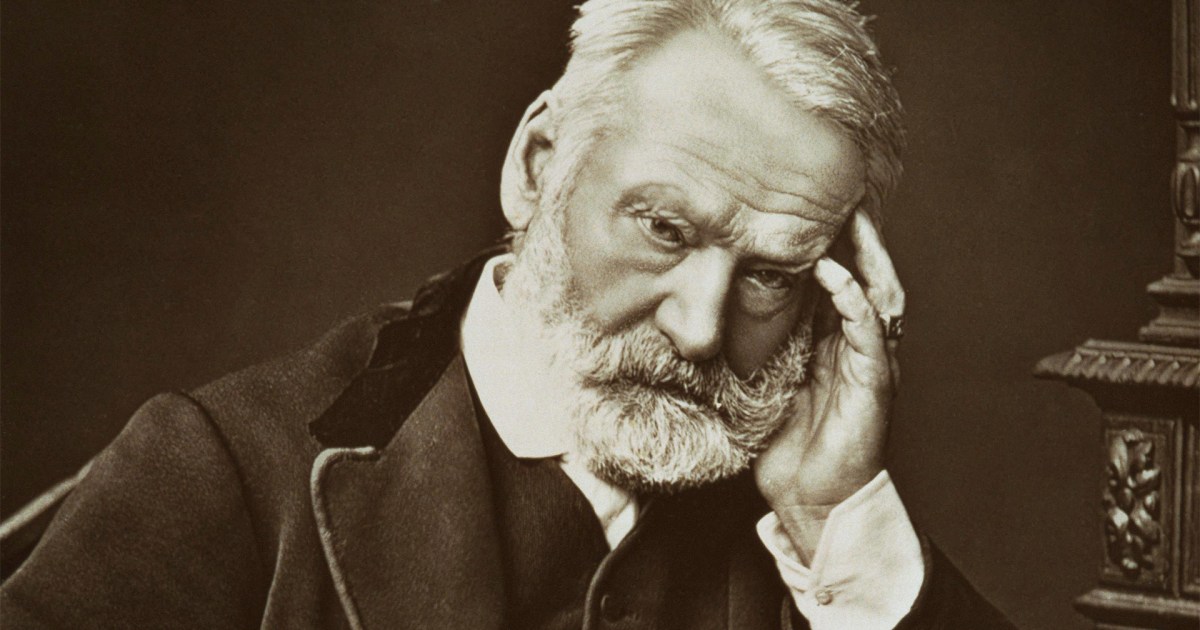France started its colonial policy by the first quarter of the 16th century, imposing its control on more than 20 African countries, and it continued to rule about 35% of the continent’s area for 300 years.
In order to justify the invasion of the African continent, the colonists claimed that they were carrying out the mission of spreading civilization, and that they were driven by a desire to put an end to the oppression of black people, which, paradoxically, was used as an excuse to invade the continent.
In a report published by the French newspaper "Le Nouvel Observateur", the writer Francois Renard says that the famous French writer Victor Hugo (1802-1885) is undoubtedly one of the greatest writers and thinkers in history, and he was a poet and novelist famous in His time, but he was adopting some of the prejudices and wrong judgments that were popular in that century.
The colonial face of Hugo
In his last days, after European penetration into the continent began, Hugo, who was a member of the French Senate, preached to his countrymen to accelerate the process of colonizing Africa, describing this colonialism as necessary and easy.
In this regard, Victor Hugo said at the time: “Come on people, take this land, get it, for whom does it belong? It is not the property of anyone, go and get this land for the sake of the Lord, it is he who gives the land to people, and the Lord has given Africa to Europe” .
The writer says that this fanatic speech delivered by Victor Hugo in 1879 was not in the presence of a mission of explorers, or a group of professionals and merchants wishing to search for new opportunities, but in the presence of the French writer and parliamentarian Victor Schulcher during a banquet to celebrate the abolition of slavery, a decision that contributed Schulcher arrived at him, seeking to abolish slavery in the French colonies during the Second Republic in France in 1848.
Hugo and Schulcher
At the time, Victor Hugo considered that there was no contradiction between encouraging the liberation of blacks from slavery and the occupation of their continent, and the logic he used to support his position was that "the white man was made from black as a human in the 19th century, and in the same way, Europe will make Africa a world in 20th century. "
This thought that Victor Hugo and Victor Schulcher agreed upon, despite the fact that they are characters described as "progressive and with a human sense"; He made them one of the most prominent advocates of blacks, while at the same time on colonialism.
The writer notes that during the 19th century the African continent was divided between world powers (the United Kingdom, France, Belgium, Portugal, and Germany) and images of soldiers and military mechanisms to this day still exist to document that era.
Several studies were conducted to explain the deep reasons behind this European expansion to the south, and until 1870 the Europeans knew of Africa only from its coast, and began to explore the interior; It turns out that it is rich in good things and a promising stock for the old continent, which was experiencing an industrial revolution and needed raw materials and foreign markets to export its goods.
The colonial policy was supported by figures described as progressive, and she was convinced that it was necessary to do this for the purpose of serving humanity. Among them is Jules Ferry, who said during a parliamentary debate in 1885 that the reason for heading to colonialism in Africa is that superior ethnicities have rights at the expense of lower ones. The former also has a duty to spread civilization to the second, according to the French newspaper report.
Colonial gains
Jules Ferry - like other theorists of colonialism at the time - was fully convinced that this policy would bring his country enormous economic gains. These people were mainly seeking to seize and exploit the Negroes, and they generally wanted to control the rest of the world, under the slogan "the mission of spreading civilization", which was raised by all Western countries at the time, and claims to stand against slavery.
The author states that the European countries at that time used the fight against slavery as an excuse, and claimed that the best way to eliminate the slave trade is to go to the depths of the African continent and prevent their kidnappings and slavery.
One of the most prominent examples of this European hypocrisy was what the King of Belgium Leopold II did, who was desperate to establish a colony in Africa, but his government prevented him from taking this step. During the anti-slavery conference organized in Brussels, he donated huge funds to this cause, and he made a photo of himself as a black editor; Through this trick, he managed to persuade the Belgians and Europeans in general, and go to control the Congo.
In the context of the protests that "the lives of blacks are important" that expanded globally, the King of Belgium, Philip, expressed at the end of last June, "his deep regret for the wounds" caused by the Belgian colonial period in the Democratic Republic of the Congo during the era of the former King Leopold II, which historians described as the bloodiest, When he ran the Congo and its riches as his private property from Brussels.
The author explains that European propaganda at the time was talking about liberating the black continent, practicing obfuscation and restricting the movement of people in villages in Africa so that the news did not pass, in fact this European colonialism was full of violence, occupation, and plundering of natural resources, and the local people were considered inferior, imposing They had a foreign system of government, and they were used to forced labor to construct the infrastructure that the occupiers needed.

